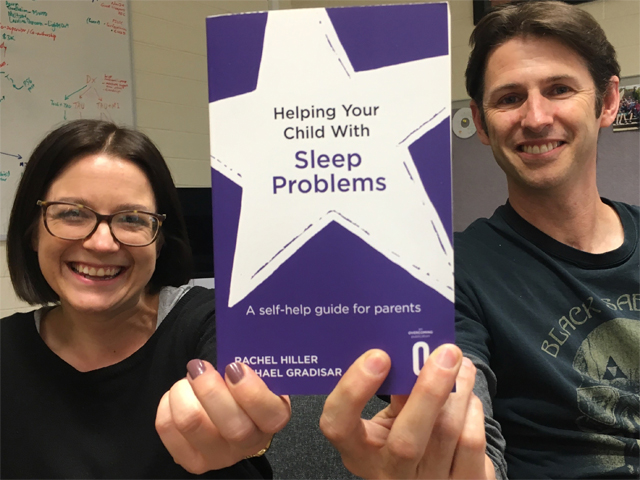New Book Helps Families Improve Child Sleep Woes

Escalating family anxiety over childhood sleep problems affect everyone in a family unit – parents, siblings and the child enduring sleep issues – but a new book that teaches parents step-by-step treatments puts research-supported techniques into the home environment.
Flinders University pediatric sleep expert Professor Michael Gradisar says the issue of sleep difficulty among school-aged children is rarely explored in book or online advice, so this new book aims to offer clarity for parents wrestling with the concerns of what is abnormal in sleep patterns, or what should be ignored.
Half of all children experience sleep problems at some point, so the book provides step-by-step instructions to help children aged 5-12 years. It identifies a range of sleep problems that the authors have most commonly seen in clinical work – led by children who find it difficult to sleep without a parent present, or who are very anxious at night time.
Professor Gradisar says sleep problems are rarely caused by a single issue, which is why the book - Helping Your Child with Sleep Problems: A self-help guide for parents, by Rachel Hiller and Michael Gradisar (published by Little Brown Book Group, a Hachette UK company) – presents a range of possible solutions for specific issues.
Professor Gradisar says parents are often fixated on sleep difficulties with babies, yet they are often less timely seeking help with older children's sleep issues, or are confused about where to seek appropriate advice.
He speaks about this issue with significant authority, being part of a global panel of experts for World Baby Sleep Day, a US Initiative run for the past three years by the Pediatric Sleep Council. Professor Gradisar will again join a team of international pediatric sleep experts on March 1, 2019, to participate in a World Baby Sleep Day question and answer event on Facebook.com/pedsleep.
In contrast, the new book is devoted to techniques for helping older children with sleep difficulties that have been tested via research studies, and it aims to provide practical advice that parents and children can understand and adopt.
"Ultimately, our hope is that this book helps parents to feel more confident and empowered to help their child's sleep problem, so the whole family can get a better night's sleep," says Professor Gradisar.
The release of this book builds on Professor Gradisar's 16 years' expertise in this area. In 2005, Professor Gradisar opened the Child and Adolescent Sleep Clinic at Flinders University, where he pioneered the development of cognitive and behavioural treatments for childhood sleep disorders. Book co-author Rachel Hiller joined the clinic in 2011, and specialised in cognitive and behavioural treatments, before relocating the UK to continue her research and clinical work in the area of clinical child psychology.
Part 1 of the book identifys and defines sleep problems, addressing such questions as how do sleep problems develop, and why do they stick around?
Part 2 explains step-by-step techniques to help resolve sleep problems related to anxiety. This includes new pediatric techniques called bedtime restriction and sleep restriction therapy, that help a child to fall asleep faster, and to stay asleep during the night. It also explains techniques that help children to face their fears, and deal with night terrors, sleep-walking and bed-wetting (that are collectively part of a group identified as parasomnias).
Part 3 explains tips and techniques to help a child maintain good sleep, especially as they become a teenager.
"Although it's been great to see families 1-on-1 in our Child & Adolescent Sleep Clinic at Flinders, it's even better to now have an impact on families around the world with this new book," says Professor Gradisar.
MORE



